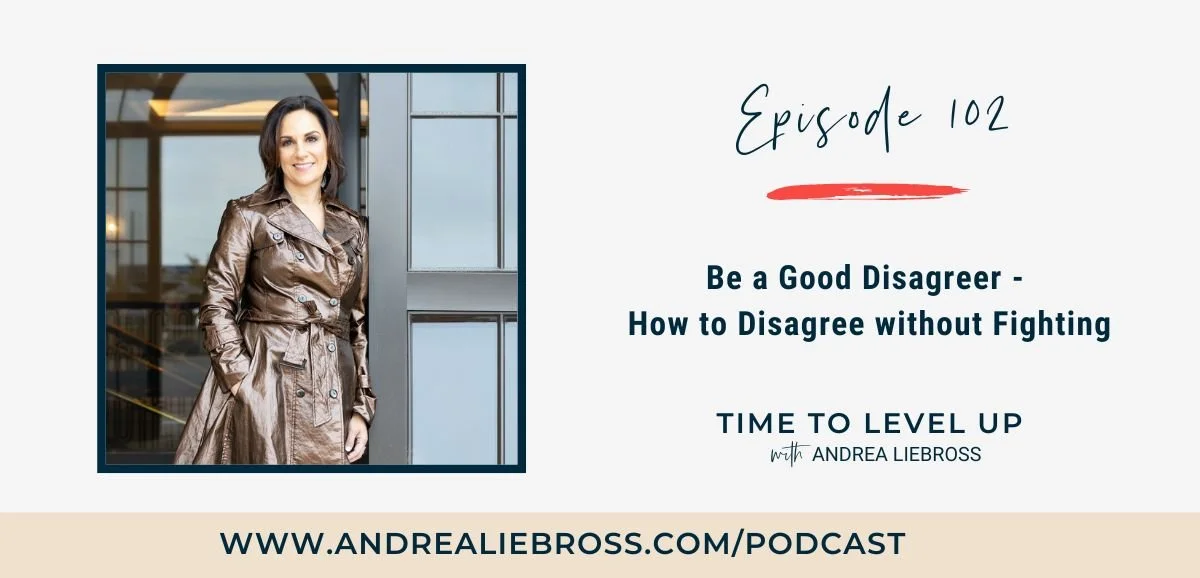102: How to Disagree Politely and Avoid a Fight
You probably live or work with people you disagree with. Even if you’re somehow fortunate enough not to, that might change in the next few weeks. The holidays are coming and with them--family get-togethers! But can you disagree without fighting?
How do you avoid a disagreement between you and your uncle over the holiday dinner table from devolving into a fight? In this episode, I talk about why we find it challenging to get along with others sometimes and share strategies to help you prevent the next disagreement from turning into a fight.
In Today’s Episode We Discuss:
3:20 - Why we think it’s so challenging to get along with people
5:00 - The real reasons why it’s difficult to get along with everyone
12:18 - The 1st strategy for overcoming disagreements without creating a fight
18:28 - The 2nd method to prevent a disagreement from turning into a fight
21:35 - The 3rd strategy to use to disagree without fighting
24:18 - The 4th thing you need to know to prevent fighting over disagreements
Mentioned In Be a Good Disagreer: How to Disagree Without Fighting
Other Episodes You'll Enjoy:
94: Client Success Story: A Small Business Journey From Chaotic to Calm with Monday West
90: How to Switch from Stuck Stress to Productive Stress Mode
[fusebox_transcript]

